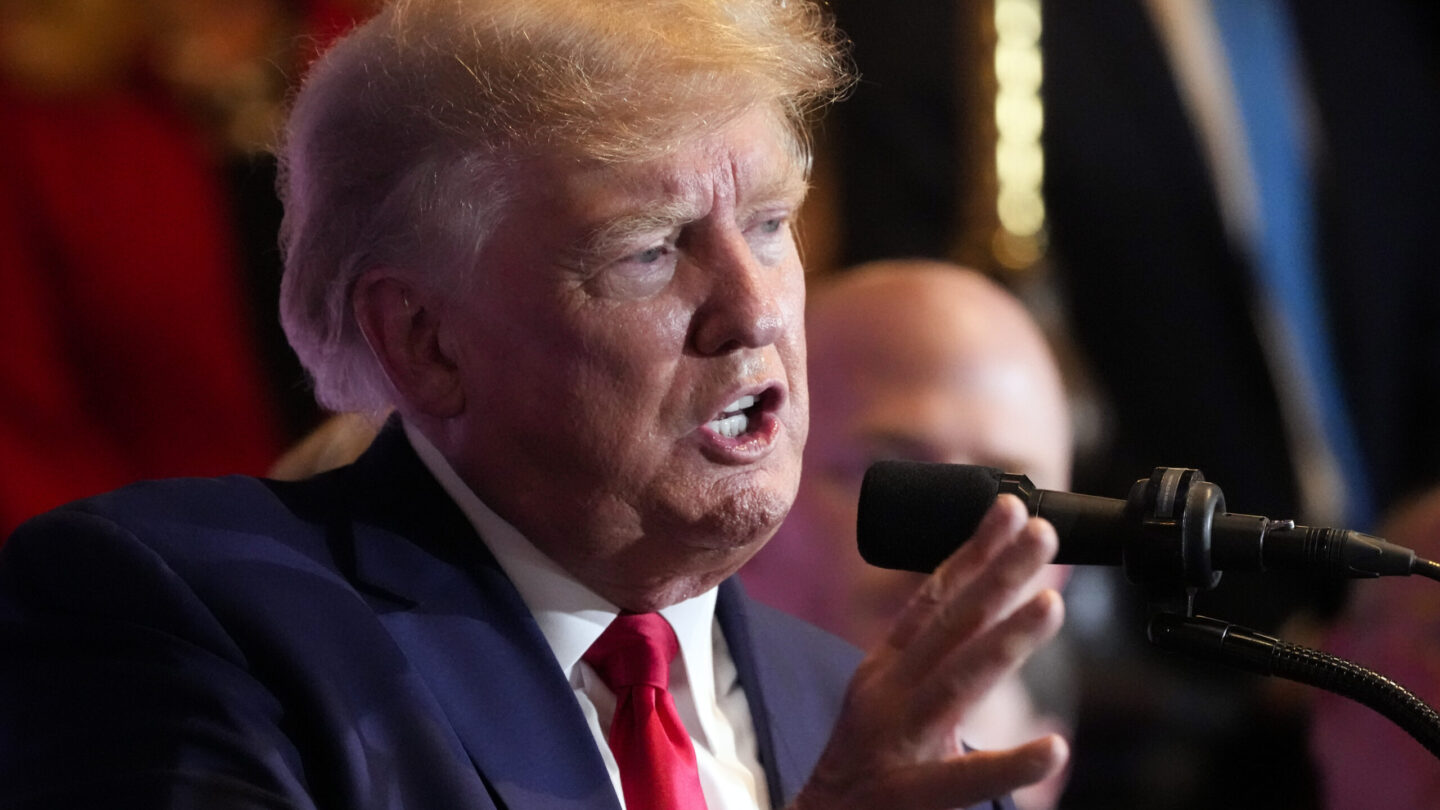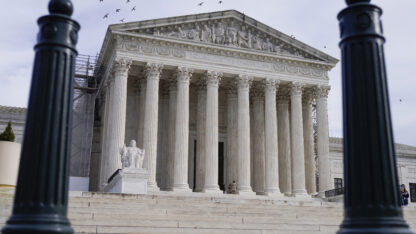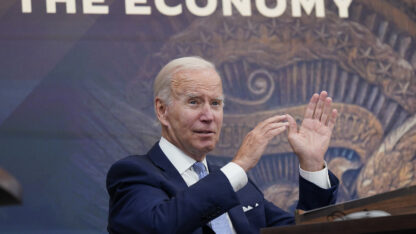Two major conservative groups have signaled they are open to supporting someone other than Donald Trump in the 2024 race for the White House, the latest sign from an increasingly vocal segment of the Republican Party that it’s time to move on from the former president.
David McIntosh, the president of the influential Club For Growth group, said Tuesday that the group has invited a half dozen potential Republican candidates to its donor summit in Florida next month, but Trump — the only declared major candidate in the race so far — is not among them.
Instead, the group has invited Florida Gov. Ron DeSantis, who is viewed as Trump’s most formidable likely challenger, along with Nikki Haley, the former South Carolina governor and United Nations ambassador; former Vice President Mike Pence; former Secretary of State Mike Pompeo; Sen. Tim Scott of South Carolina; and Virginia Gov. Glenn Youngkin.
“We think it would be great for our members to hear them, see what they have to say, where they want to lead the country,” McIntosh said in an interview.
His comments came on the heels of a memo released over the weekend by the conservative advocacy group Americans For Prosperity that said the group was prepared to support someone other than Trump in the GOP primary.
Tensions between Trump and both groups are not new, but their willingness to get involved on behalf of another candidate may only encourage at least half a dozen potential rivals who are considering campaigns. Haley is expected to announce her 2024 campaign next week in South Carolina.
Both groups join several megadonors who have signaled in recent months that they’re looking elsewhere for a presidential nominee.
Trump is facing a swirl of legal problems and has been blamed for the GOP’s underwhelming performance in last year’s midterm elections. However, he remains the most dominant figure in the party and has a been a prolific fundraiser, relying on a network of small donors.
Asked for comment Tuesday, Trump’s campaign pointed to messages on his Truth Social network in which he called McIntosh’s organization the “Club For NO Growth.” He later posted an additional message Tuesday calling the group “an assemblage of political misfits, globalists, and losers.”
Club For Growth, an anti-tax group, opposed Trump during his 2016 campaign but became a big ally once he won the White House. But the group has been at odds with Trump over the last year after it endorsed opposing candidates in Republican primaries, especially in the Ohio and Pennsylvania Senate races.
McIntosh said the group is open to supporting a candidate in the Republican presidential primary, potentially running ads on their behalf. But he made clear that the group would support Trump in the general election if he became the nominee.
“One of the factors that we’re taking into account is that the Democrats successfully used him in the last election to win a lot of races,” he said. “There’s a sense in all of this that we want to make sure whoever we nominate can win in the presidential race and people want to see that.”
Americans For Prosperity, founded by the billionaire industrialist Koch brothers, has long clashed with Trump. Their substantial network refused to endorse him or any candidate in the 2016 and 2020 presidential elections.
Trump in the past has lashed out at the brothers, calling them a “total joke” and “globalists” who are “against Strong Borders and Powerful Trade.”
In the new memo, the group said “the best thing for the country would be to have a president in 2025 who represents a new chapter.” It said the political advocacy arm of AFP is prepared to support a candidate in the GOP primary “who can lead our country forward, and who can win” — with an added emphasis on “win.”
A spokesperson for the group did not offer any further details about the process, including when the organization might make a decision on whom to endorse and which candidates might win the group’s backing.
The pro-business, free-market group spent more than $30 million in advertising against President Barack Obama’s reelection in 2012. AFP’s political arm spent almost $80 million in the 2022 midterms on behalf of House and Senate candidates, according to reports filed with the Federal Election Commission.
Once more candidates enter the race in the coming months, AFP is expected to go through a comprehensive vetting process based first on each candidate’s policy positions. The organization has long refused to endorse Trump because he wasn’t viewed as sufficiently conservative on trade and federal spending, among other issues.
But AFP will also prioritize viability as a key factor in the endorsement process. By doing so, AFP — viewed as the largest and best-funded grassroots organization in the nation — could help narrow the Republican field in 2024 by starving lower-tier contenders of funding and attention.
Trump critics within the GOP fear that the former president may benefit from a crowded field that ultimately divides the anti-Trump vote in the early primary states.









